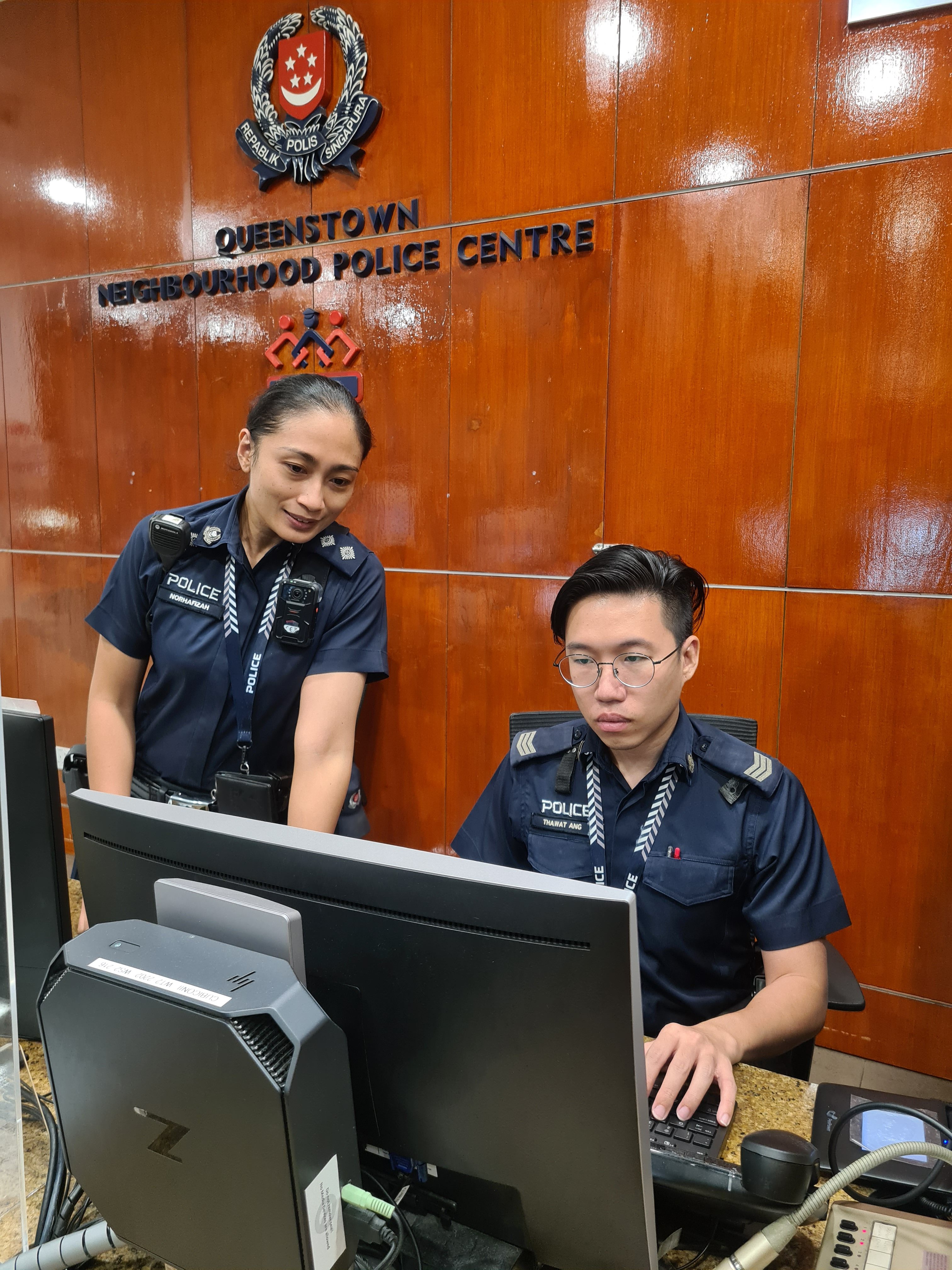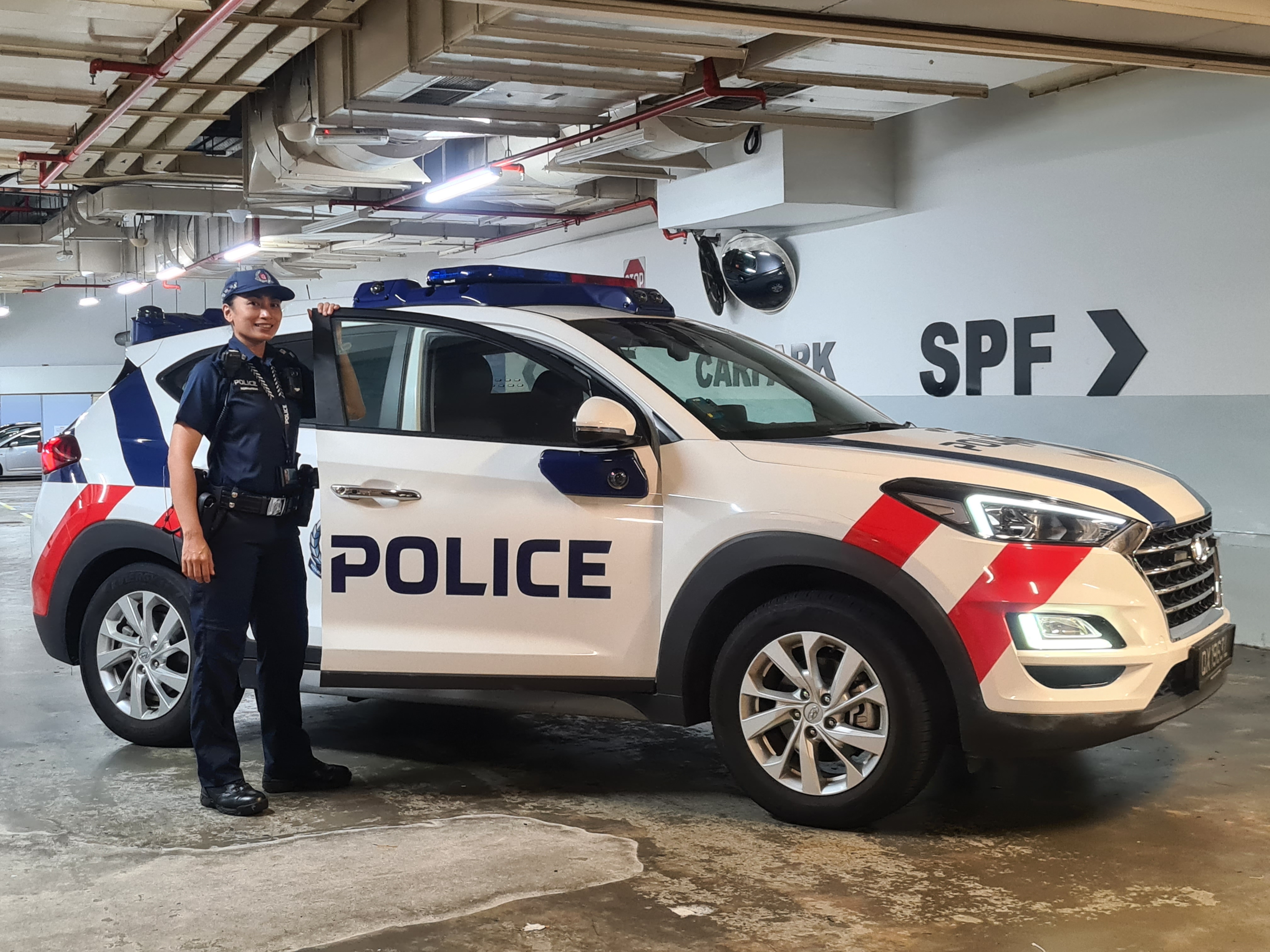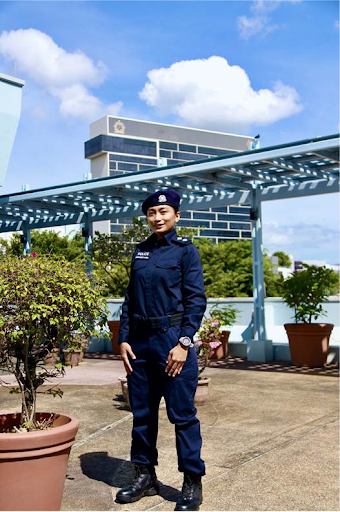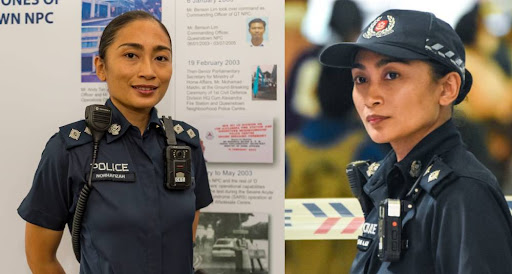When Inspector Norhafizah Binte Abdul Aziz decided to join the Singapore Police Force (SPF) in 2003, her father did not send her off on her first day of training.
But it wasn’t a show of disapproval.
To Norhafizah, it meant that he had faith that she would be fine on her own and in good hands.
After graduating from the six-month police training programme, the then-24-year-old was posted to Queenstown Neighbourhood Police Centre (NPC) as a frontline officer.
To ease her daily commute, Norhafizah’s father bought her a motorcycle.
Norhafizah acknowledges that it’s not what most fathers would do.
But then again, most don’t come from a family of police officers either.
Norhafizah’s father is a retired police officer, and her elder brother is a member of the Police Coast Guard.
The SPF was also where she met her husband, who was working at Clementi NPC.
To Norhafizah, 40, one of the biggest benefits of being in a family of police officers is the implicit understanding that her loved ones have when it comes to her job.
She has never been questioned about her work or why she’s back home late after a long 12-hour shift — which is also testament to the passion and dedication that police officers have to possess.
“There is this understanding and trust that I am able to manage my time and be responsible for my actions.”
After 16 years in the SPF, Norhafizah is now a Deputy Team Leader in the Ground Response Force, managing a team of 18 officers.

While patrolling and attending to ‘999’ calls are all in a day’s work for Norhafizah, there’s so much more to her job.
Pioneer member of the Special Women Task Team
Don’t let her 1.62m frame fool you; Norhafizah can keep up with the best of them in a physical fitness test — men included.
“People have told me that I don’t look like a mother of three,” says Norhafizah, who has two children in primary school and one in Secondary 2.
But her physicality is not for vanity’s sake.
“I tell the younger officers that it’s not about trying to look good. If I’m not physically fit and I’m not well-trained, it could jeopardise not only my own safety but also my partner’s safety, as we usually work in pairs.”
And, of course, her family, who is counting on her to return home safely.

Norhafizah is a pioneer member of Singapore’s first Special Women Task Team (SWTT).
The SWTT, deployed during public demonstrations or times of civil unrest, falls under the Special Operations Command (SOC).
She was selected to the team in 2009 after an interview and intensive physical training, which included armlock drills to pin down targets.
 Special Women Task Team (SWTT) Attire.
Special Women Task Team (SWTT) Attire.
Even though her skills have not been put to the test, thanks to Singapore’s public safety record, Norhafizah is always ready for any emergencies.
Paracounsellor to those in need
With her years of experience as an NPC police officer, Norhafizah observes that there’s a distinct difference in the types of cases she attends to now compared to a decade ago.
“Now, we attend to more cases of domestic violence and also see more cases involving youth and children. These usually have to do with issues such as bullying or depression,” adds Norhafizah.
Seeing first-hand the importance of mental health and psychological well-being spurred Norhafizah to further her studies in psychology, a subject she’d always been interested in.
For a time, she juggled work and part-time studies to obtain her bachelor’s degree in psychology and security studies.
As a paracounsellor within the SPF, a role she signed up for at the same time as her training for the SWTT, Norhafizah has helped many of her colleagues going through emotional upheavals or periods of stress.
Paracounsellors in the SPF undergo rigorous selection and training, allowing them to identify those who are struggling psychologically or emotionally and provide them with much-needed support.
Norhafizah recalls how she was assigned to check in with a colleague and friend who had gone through two miscarriages.
“Because both of us are in the frontline and we carry firearms, it was important to ensure that her mental health was okay,” says Norhafizah, sharing that it took six months before she was convinced that her colleague was well enough to be back at work.
As a paracounsellor, Norhafizah has had to keep her emotions in check so as not to “drown” in the other party’s negativities, and to keep her cool even when she gets scolded by them.
“I think I’ve got a good level of tolerance and patience, I’m used to it,” she laughs.
Her skills have also helped her on the ground when faced with challenging situations.
In hindsight, being a paracounsellor has offered her more options in her box of tools to help others.
“As a paracounsellor, I think it has helped me to be more understanding when attending to cases. With the extra knowledge and skills, we are able to give people more options to move forward in their lives.”
One could say that as a policewoman, her job involves both ‘heart work’ as well as hard work — both just as fulfilling.
The stark contrast between her roles means there’s never a dull day on the job.
Norhafizah says her reason for taking up the various opportunities that SPF has to offer is not for the sake of career progression.
“It’s not for the rank, but more for personal development and out of personal interest,” she says.
“Knowing that what I’m trained in and what I’m interested in can be used to help others, it is very fulfilling.”
This article is sponsored by the Singapore Police Force.
All photos courtesy of the Singapore Police Force.
If you like what you read, follow us on Facebook, Instagram, Twitter and Telegram to get the latest updates.
